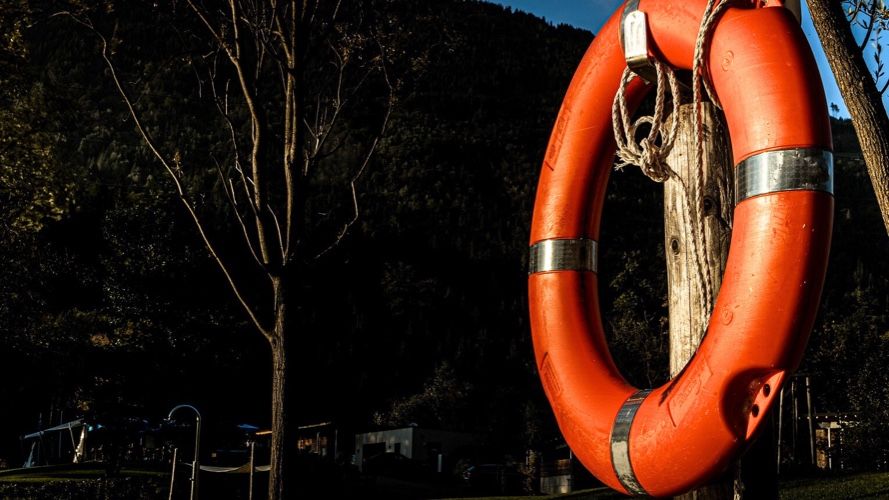Is my child safe at camp? Key safety policies explained

Introduction
If you're sending your child to camp for the first time, one question tends to rise above the rest: Is my child safe at camp? That concern is completely normal. Dropping your child off at a place they’ve never been - surrounded by new people, new routines, and often without daily contact - can feel overwhelming. This guide is here to help you understand how camps prioritize safety, what policies matter most, and what questions you can ask to make a confident, informed decision.
Key takeaways:
- ACA-accredited camps follow nationally recognized safety standards
- Look for clear health, emergency, and staff training protocols
- Emotional wellbeing (including homesickness) is part of safety too
- Parents should ask direct questions about camper supervision and care
- Use a camp's safety info and resources to guide your decision
Why camp safety matters for first-time parents
Choosing a summer camp is exciting-but for first-time parents, it often comes with a lot of uncertainty. You may be wondering:
- Who is watching my child throughout the day?
- What happens if they get sick or hurt?
- How do I know they’re emotionally okay while they’re away?
These questions are valid and important. Camp safety isn’t just about policies-it’s about peace of mind. The good news is that reputable camps work hard to make safety a top priority, from the moment your child arrives to the moment they come home.
Understanding ACA accreditation
When researching camps, one of the first things to look for is ACA accreditation. The American Camp Association (ACA) sets rigorous safety and quality standards that go above state licensing. Camps that earn ACA accreditation voluntarily meet over 300 standards related to health, safety, staffing, and program quality.
ACA standards cover areas like:
- Staff screening and background checks
- Camper-to-counselor ratios
- Emergency and risk management plans
- Health care supervision and medication storage
- Sanitation, food safety, and program oversight
You can verify accreditation through the ACA’s searchable camp directory.
Key summer camp safety policies
Camps that take safety seriously usually follow consistent best practices across four core areas: supervision, health care, emergency planning, and environment.
Camper supervision and staff training
- Staff should be trained in camp counselor safety, CPR, and First Aid
- Younger campers should have lower staff-to-child ratios (e.g. 1:6 or better)
- Camps should follow the “rule of three” to avoid 1:1 staff-camper situations
- Staff should receive behavior and inclusion training
On-site health protocols
- Camps typically have a nurse, EMT, or health supervisor on-site
- There should be clear systems for managing medications and allergies
- Camps should follow CDC health guidelines around illness prevention
- Look for daily health checks and sanitation procedures
Emergency preparedness
- Fire, weather, and injury response plans should be in place and practiced
- Staff should know who to contact and how to communicate with families
- Camps should provide parents with clear emergency contact information
Facilities and environment
- Grounds and activity areas should be well-maintained and secure
- Safety equipment (helmets, life jackets, etc.) should be available when needed
- Waterfronts should be staffed by certified lifeguards
Reputable camps will share this information upfront, often through their website or in their parent resources section.
Questions to ask before choosing a camp
Feeling confident starts with asking the right questions. Here are a few to keep handy:
General safety
- Are you ACA accredited?
- What is your camper-to-counselor ratio by age group?
- How do you train your staff on summer camp safety tips?
Health and emergencies
- What happens if my child gets sick or injured?
- How are medications stored and administered?
- How will I be contacted in case of an emergency?
Emotional support
- How do you handle homesickness?
- Do you have policies in place to prevent bullying or social exclusion?
- Can I review your parent handbook or overnight camp checklist?
Bringing these questions to a camp tour or open house can give you clearer insight and help you feel more in control of the decision-making process.
FAQ
- Is camp safe for first-time campers?Yes - especially if the camp has strong supervision, trained staff, and clear safety protocols. Many first-time campers thrive with the right support.
- What does ACA accreditation mean?ACA accreditation is a voluntary process where camps meet over 300 health, safety, and program standards set by the American Camp Association.
- How do camps deal with homesickness?Staff are trained to support children through homesickness with structure, peer bonding, and gentle reassurance - without immediately resorting to sending kids home.
- What medical resources do camps provide?Most camps have an on-site health professional and follow safety protocols for illness, medication, allergies, and minor injuries - often aligned with CDC guidance.
- How do I know if a camp is the right fit?Start with the camp’s parent resources, ask detailed safety questions, and consider your child’s comfort level using a camper readiness checklist.
Conclusion
As a first-time parent, it’s completely natural to worry about your child’s safety at camp. But with the right information-and the right questions-you can feel confident that many camps are fully prepared to support your child’s physical and emotional wellbeing. From ACA accreditation to trained counselors and thoughtful homesickness support, the best camps are built with safety at the core. You don’t have to figure it out alone-we’re here to help every step of the way. Explore our summer camp listings and find a safe, enriching experience for your child.


